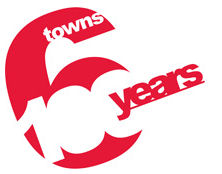31st March 1910 saw the federation of the
six towns to form the County Borough of Stoke-on-Trent
|
Stoke-on-Trent Local
History |
|
|
|
|
| Federation of the six towns 31st March 1910 saw the federation of the six towns to form the County Borough of Stoke-on-Trent |
![]()
![]()
![]()
next: Parliamentary Elections
Pt 2
previous: Stoke-on-Trent MP's
contents: Index page for
Federation


Federation article by local
historian - Fred Hughes
People who
made the Potteries
Parliamentary Elections - Pt 1
|
Britain’s two-party adversarial system began with the Whigs and the Tories in 1783. It also meant that the party with the most parliamentary seats held power irrespective of the number of votes it obtained.
Two Liberals in 1868 were George Melly, a Liverpool ship owner, and Wolverhampton-born William Roden, the managing-director of Shelton Steel works. Two subsequent MPs, William Woodall, a Salopian, and Henry Broadhurst from Oxford, were also elected as Liberal MPs in 1880. William Leatham Bright came from Rochdale, while Douglas Harry Coghill – MP for both Newcastle and Stoke-on-Trent on separate occasions – was brought up in Cheltenham. When Melly retired in 1874 Stoke-on-Trent elected the weirdest MP in its parliamentary history. He was an Irish barrister named Edward Kenealy who unsuccessfully defended ‘Palmer the Poisoner’ the prolific Rugeley murderer. Kenealy himself was disbarred from office while defending his client in the notorious Tichborne fraud case, making a bad career move by accusing the judge of incompetence.
The 1906 election moulded the features of present-day politics. With more than 5.5million people then able to vote the Liberals clung to power with less than fifty-percent of the turnout. It was this election that saw the birth of the Labour Party with 29 MPs led by Kier Hardie.
Becoming a single North Staffordshire unitary authority was a preference of most local manufacturers and the Wedgwood’s were known to support its projection. Cecil Wedgwood, Stoke-on-Trent’s first mayor in 1910, was the driver behind the city federation and his cousin, Josiah Clement, popularly known as Jos, wanted it extended to include Newcastle-under-Lyme. In 1929/30, though, he changed his mind and campaigned passionately against a proposed Stoke-on-Trent and Newcastle merger. To the cynical it seemed to be an act of disingenuous politicking. Nevertheless he was rewarded with the mayoralty of Newcastle in 1931. Jos was Newcastle’s Liberal MP from 1906 until in 1919 when it was said that he signed up to Labour under pressure from North Staffordshire miners who advised him they would put up their own Labour candidate if he didn’t.
Jos inaccurately saw himself as a radical. He desperately sought political elevation but never quite made it; his best shot was as cabinet minister as Chancellor of the Duchy of Lancaster. In a letter to his daughter Camilla in 1942, he tellingly wrote – ‘I have been everywhere, seen everything, known everybody; done everything – but achieved nothing.’ You could say it is a sentiment that may be echoed by the majority of the retiring 646 MPs of the current parliament. |
![]()
![]()
![]()
next: Parliamentary Elections
Pt 2
previous: Stoke-on-Trent MP's
contents: Index page for
Federation